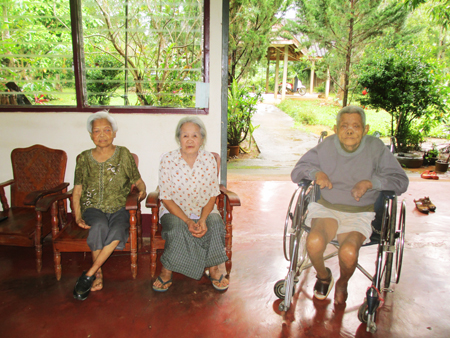The Social Bases of Care in Southeast Asia: Study of the Dynamism of Practice Based on Relatedness.
Principal Investigator: HAYAMI, Yoko
Period: FY2013-15
Outline:
This project aims to find out on what social bases care is practiced in Southeast Asia, with special attention to various forms of relatedness, both new and old. The argument on care and social security systems have been centered on the industrialized societies, while that in Southeast Asia was simply considered lagging behind and unsystematized. Public support systems and policy have indeed only recently become an issue in the region. Meanwhile, in the social formation of Southeast Asian societies, “the private domain” has never constituted a closed separate space. In Southeast Asian societies, the opposition of “public vs. domestic” or the foursome division of “public, domestic, market civilian” sectors as bearers of care cannot be considered as predetermined separate domains. How is care practiced, who is expected to take the burden in such societies? Where aging and mobility is recently becoming a rising issue, what kinds of needs are arising, and how is care practiced? This, we hope will throw light on alternative ways of practicing and distributing care. We will first perform a country-based comparative study of policies related to care and security in the various countries, and then study on-the-ground relationships and loci of care. This will make us aware of new and old forms of social movements, activities and relationships in the region, and to reconsider the dynamics of Southeast Asian societies through the concept of care and its social bases.

